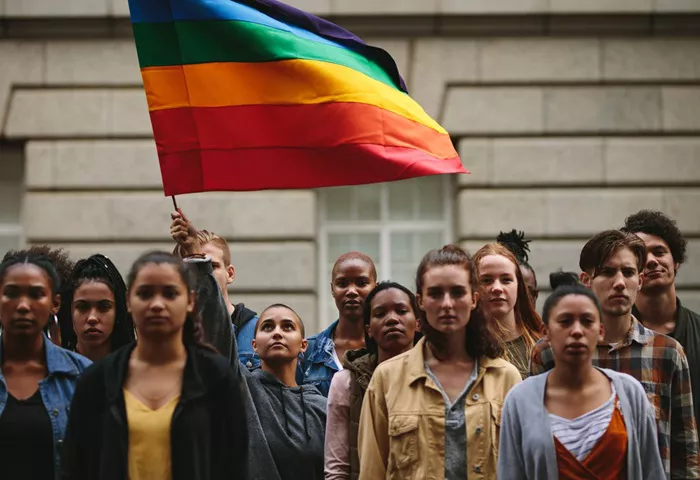The recent Centers for Disease Control and Prevention (CDC) report on their 2023 Youth Risk Behavior Survey (YRBS) highlights an alarming trend: LGBTQ+ teens are experiencing a mental health crisis at a disproportionately high rate. The data reveals a disturbing reality: 41% of LGBTQ+ teens seriously contemplated suicide in the past year, 32% made a plan, and 20% attempted to take their own lives. This is a stark contrast to their cisgender and heterosexual peers, where 13% considered suicide, 11% made a plan, and 6% attempted it.
Despite advancements in LGBTQ+ representation and rights over recent decades, many queer and trans youth continue to navigate environments that are hostile to their identities. Ongoing conservative efforts to reverse LGBTQ+ progress—including restrictions on gender-affirming care, forced disclosure of students’ identities to parents, and bans on LGBTQ+ inclusive literature—have exacerbated this crisis.
The State of Youth Mental Health
Teenagers have always faced mental health challenges, but recent years have seen a dramatic increase in issues such as depression, anxiety, and suicide among the youth population in the United States. The 2023 report, based on over 20,000 responses from students across 155 schools, indicates a worsening trend in mental health indicators, despite some improvements.
Encouragingly, there have been slight reductions in suicide planning among Hispanic youth and attempts among Black students, but the overall picture remains troubling. Unfortunately, comprehensive data on LGBTQ+ youth is limited, as the CDC only recently began collecting detailed information on transgender students. The evolving nature of these data collection methods means that understanding of LGBTQ+ mental health trends will take time.
The Unique Challenges Faced by LGBTQ+ Teens
LGBTQ+ youth confront unique challenges beyond those faced by their peers. The intersection of being queer or trans with the typical struggles of adolescence creates a “developmental collision,” as described by Stephen Russell, director of the School of Human Ecology at the University of Texas at Austin. This period of heightened self-awareness and peer pressure can lead to increased bullying and discrimination.
Additionally, broader societal issues like climate change, gun violence, and the impact of the COVID-19 pandemic contribute to the instability and stress that affect mental health. A culture war against “wokeness” has further intensified hostility toward LGBTQ+ youth, complicating their ability to thrive.
Strategies for Supporting LGBTQ+ Youth
Addressing the mental health crisis among LGBTQ+ teens requires multifaceted approaches. At the macro level, implementing inclusive policies in schools can make a significant difference. Research shows that schools with anti-bullying and anti-discrimination policies experience lower rates of victimization and bullying among LGBTQ+ students. However, a significant portion of LGBTQ+ students live in states without such protections.
On a more localized level, Gender and Sexuality Alliances (GSAs) offer crucial support. These student-led groups foster community, provide mutual support, and contribute to a safer school environment. Evidence suggests that GSAs can help reduce the risk of suicide and depression among LGBTQ+ youth.
While there is a growing body of research on effective interventions, more data is needed, particularly concerning trans youth and LGBTQ+ youth of color. It is essential to recognize that the mental health struggles faced by LGBTQ+ youth are not a result of their identities but rather the stigma and discrimination they encounter.
Looking Forward
The road to improving mental health for LGBTQ+ teens is challenging but not insurmountable. Advocacy and grassroots support are vital in driving change. As Jessica Fish, an associate professor at the University of Maryland’s School of Public Health, emphasizes, mobilization and community support are key to making meaningful progress.
In conclusion, while LGBTQ+ youth face significant mental health challenges, addressing these issues with empathy, informed policy, and supportive interventions can make a profound difference. It is crucial that efforts continue to evolve and adapt to meet the needs of this vulnerable population, ensuring that all teens have the opportunity to thrive and live authentically.
[inline_related_posts title=”You Might Be Interested In” title_align=”left” style=”list” number=”6″ align=”none” ids=”10968,10850,9697″ by=”categories” orderby=”rand” order=”DESC” hide_thumb=”no” thumb_right=”no” views=”no” date=”yes” grid_columns=”2″ post_type=”” tax=””]
































